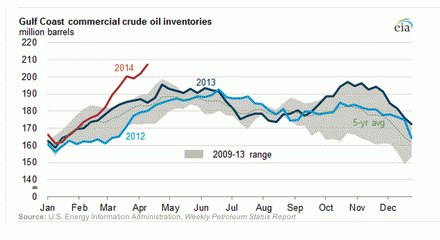A Tutorial by Journalist, Steve Horn
My guest today is journalist Steve Horn. Welcome to OpEdNews, Steve.
JB: You've been covering the Keystone XL Pipeline project pretty thoroughly. President Obama recently vetoed it. Isn't that a meaningful step toward controlling climate change?
SH: Thanks for having me and always happy to discuss this particular story I've been covering since 2011 now, over four years and going strong!
As for the nixing of the project by Obama and his State Department, it's important to clarify what he's vetoed, what he's approved and offer citizens a "101" of sorts of what Keystone XL is versus what the Keystone Pipeline System is that's owned by Canadian pipeline company behemoth TransCanada.
JB: Excellent. Have at it!
SH: As Wikipedia details in painstaking detail, Keystone XL as we call it today is but one phase of a multi-phase pipeline system called the Keystone Pipeline System. That whole system has been built except for the leg running from Alberta's carbon bomb tar sands field in Canada down to the "pipeline crossroads of the world" in Cushing, Oklahoma. Some of it was even approved by Obama: the southern leg running from Cushing down to the U.S. Gulf coast exists in large part due to an Executive Order to expedite building it signed by Obama in March 2012 during an election year.
At large, that pipeline system already does what people are saying "Keystone XL" (never defining what that pipeline actually is) set out to do: move tar sands down to Gulf refineries and the Houston Ship Channel. So TransCanada, oil traders, hedge fund tycoons, refiners and all the other gamblers in this casino we call the oil and gas industry have already largely won this fight, even as activists have declared what Obama nixed to be a major victory.
On another front, Obama's administration also quietly approved several other key pipeline nodes owned by Enbridge that I've been calling the "Keystone XL Clone ." That Enbridge pipeline system does the same exact thing as the TransCanada Keystone Pipeline System: brings huge amounts of tar sands extraction and strip mined up in Alberta down to the U.S. Gulf coast. That pipeline system was largely able to be built due to an accompanying Executive Order, Executive Order 13604, titled "Improving Performance of Federal Permitting and Review of Infrastructure Projects ."
Since that order was published in the Federal Register (on the same day, March 28, 2012, as the Keystone XL South order), several Enbridge "Keystone XL Clone" pipeline pieces have been built in unprecedented ways, not going through the normal legal National Environmental Policy Act (NEPA) review process. That has resulted in two futile lawsuits brought forth by environmental NGOs and a third one that's ongoing in the U.S. District Court of Minnesota pertaining to Enbridge's Alberta Clipper expansion project, another pipeline permitted under the auspices of Executive Order 13604 that was done so in the shadows by the Obama State Department.
NEPA reviews matter because they include robust public commenting and public hearings, aka democracy. That process, thanks to Executive Order 13604, has basically flown by the wayside on all other pipelines running through the U.S. except for Keystone XL North. Obama's White House even boasts about how quickly it's permitted pipelines via executive agencies like the U.S. Federal Energy Regulatory Commission (FERC), the U.S. Army Corps of Engineers, etc., doing so by maintaining a searchable Federal Infrastructure Permitting Dashboard, a website mandated under Executive Order 13604.
JB: Yikes!
SH: So, that is the actual state of play, which is far different from the folklore version of the story of what Obama and his White House and State Department did. But that doesn't quite answer your question about whether it matters in terms of controlling climate change.
And the simple answer is "no" because the tar sands are flowing right now to the U.S. Gulf coast at record levelsand Keystone XL's northern leg has simply become less important and useful to the industry than it used to be. Some will argue otherwise, of course, but I've yet to be convinced that tar sands production will be slowed down in any substantial and meaningful way due to this pipeline nixing by Obama. The only thing that I know of that's really slowing things down at this point is the global price of oil, which ironically is the result of the same gambling activities of the traders, hedge fund managers, etc. cashing in on the huge amounts of tar sands oil now hitting the Gulf that's "Texas Bound and Flyin'."
To me, this was a pure and I'd say fairly cynical political calculus by the Obama Administration and the Obama White House, meant to bolster his so-called "climate legacy" going into the United Nations Paris climate summit as he fast-tracks building all other pipelines and continues to hand over $20 billion/year in taxpayer subsidies to the fossil fuel industry in the U.S.to continue business as usual.
JB: Politics has made me pretty cynical but I have to admit that this revelation is really disappointing. It looks like the president has not only done what he seemed to be saying he wasn't going to do, but he's also eliminated the public's ability to weigh in, with opinions, if not clout. That's a big lose-lose equation, as far as I'm concerned.
Is there any good news to be had here? It sure doesn't sound like it, especially if this is in fact just a ploy to pretty up Obama's environmental reputation. Talk about cynical!
SH: The good news found within this bad news being PR-pitched as good news and brave/heroic by Obama and his White House is that grassroots organizing does work. This wasn't something that would've happened if not for the efforts of organizations like 350.org, Greenpeace USA, Sierra Club, Tar Sands Blockade, etc.
At the end of the day, this is a question about targets and the fact that so much symbolism was made out of this pipeline that it actually worked in Obama's favor. He can now saunter into and out of Paris and pretend to be a deep, green ecologist rather than a president who has allowed more domestic drilling and more pipelines to be laid and permitted across the United States than perhaps any other in U.S. history and certainly in modern U.S. history.
You hit the nail on the head: it's cynicism at its finest and it's on display currently in Paris, too, at the UN climate negotiations.
JB: The worst aspect of this is that many of our fellow citizens are breathing a big sigh of relief, thinking that we dodged a bullet. Ignorance, bolstered by misdirection and misinformation, sure is hard to surmount.
How do we work around this sinkhole that is the mainstream media where important and inconvenient facts often go to die? Also, did the president ever have any environmental cred or is this just more of the same?
SH: In this case, it's not just the mainstream media, but also what is often called the progressive and independent media getting facts wrong and omitting key facts on this pipeline and how it relates to other pipeline systems. We only have the truth on our side and by "we" I mean whoever happens to read my articles and those of the few others speaking truth to power. I'm not trying to say anything special about myself: I'm just reading the facts and reporting them to the public and not ignoring the obvious. We just have to keep repeating the truth because so often in this debate, there's a drum-beat of disinformation and misinformation thumping on all sides.
In terms of his "climate legacy," it's not really much of a real thing other than a fancy PR campaign backed by skillful spin-artists. The reality is business as usual has continued under his watch and all you have to do to figure that out is follow/read the substance of the policies being pushed, rather than waste your time analyzing the so-called deep-meaning of his and his administration's rhetorical ploys.
JB: That pretty much says it all. Anything you'd like to add before we wrap this up?
SH: I'd just add that TransCanada's still coming out of this okay. As I've reported, the company won a pipeline bid down in Mexicofor a segment of a broader cross-border pipeline set to carry gas obtained via hydraulic fracturing ("fracking") in Texas' Eagle Ford Shale across the border. Part of that will go under the Gulf of Mexico, safety concerns be damned.
And just this week, the company announced it has bought an even larger stake in the world's largest nuclear plant in Canada. Wall Street, Toronto, the City of London, hedge funds, private equity firms, Big Oil, Big Gas, Big Nuclear, etc. will come out of all of this just fine, as the President cleanses himself in grade-a "greenwash" of his "climate legacy" going into the Paris UN Climate Summit.
JB: Sigh. Thanks for filling us in, Steve. I won't say that it was a tremendous pleasure having this conversation, but it was an eye-opener. Please just keep doing what you're doing.
Steve Horn is a writer for Desmogblog, which seeks to "clear the PR pollution that clouds climate science." He is also a freelance investigative journalist whose work has appeared in Al Jazeera America, Vice News, TruthOut, CounterPunch magazine, Truthdig, AlterNet and other publications.








